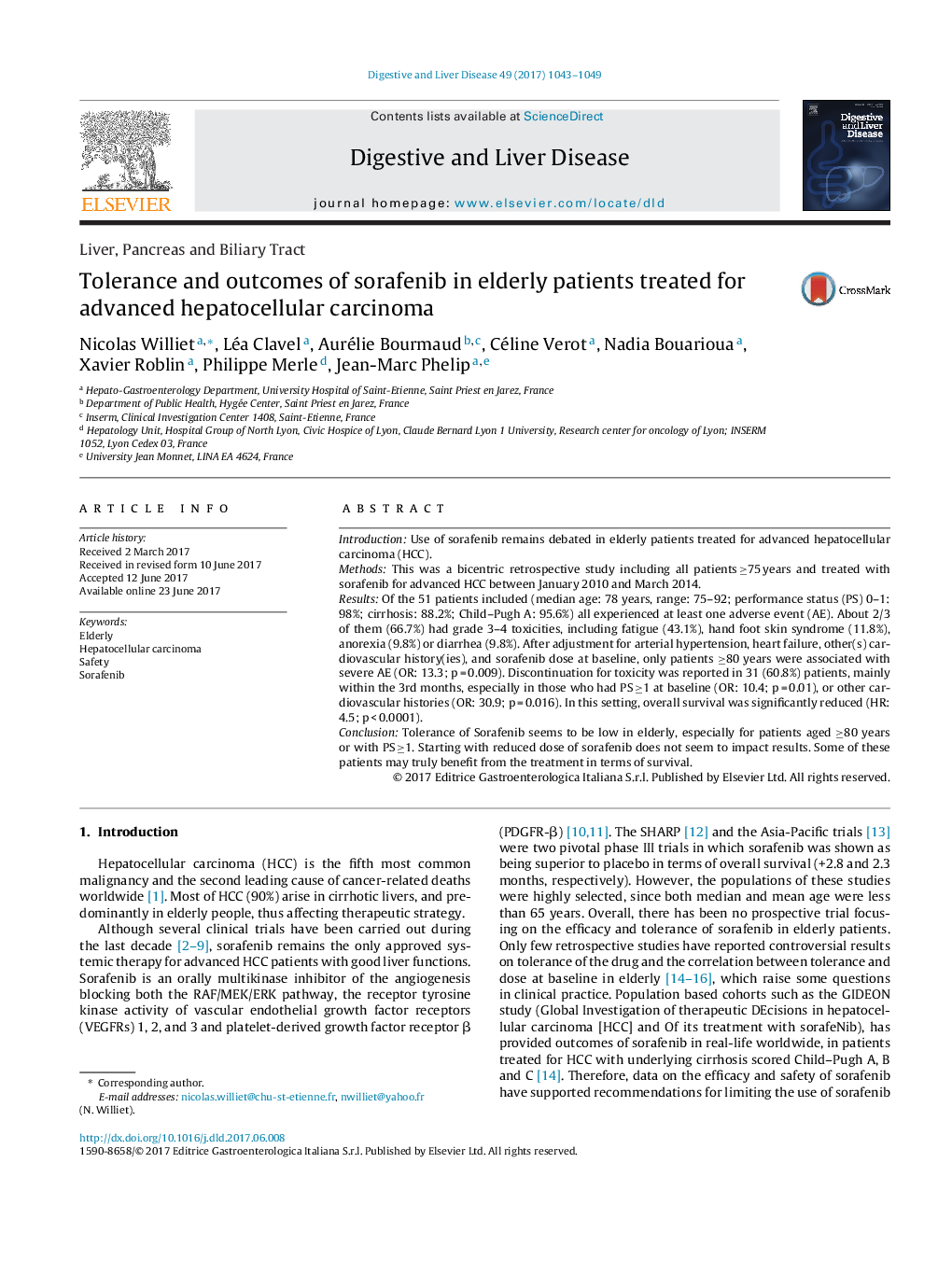| Article ID | Journal | Published Year | Pages | File Type |
|---|---|---|---|---|
| 5655603 | Digestive and Liver Disease | 2017 | 7 Pages |
IntroductionUse of sorafenib remains debated in elderly patients treated for advanced hepatocellular carcinoma (HCC).MethodsThis was a bicentric retrospective study including all patientsââ¥75 years and treated with sorafenib for advanced HCC between January 2010 and March 2014.ResultsOf the 51 patients included (median age: 78 years, range: 75-92; performance status (PS) 0-1: 98%; cirrhosis: 88.2%; Child-Pugh A: 95.6%) all experienced at least one adverse event (AE). About 2/3 of them (66.7%) had grade 3-4 toxicities, including fatigue (43.1%), hand foot skin syndrome (11.8%), anorexia (9.8%) or diarrhea (9.8%). After adjustment for arterial hypertension, heart failure, other(s) cardiovascular history(ies), and sorafenib dose at baseline, only patients â¥80 years were associated with severe AE (OR: 13.3; p = 0.009). Discontinuation for toxicity was reported in 31 (60.8%) patients, mainly within the 3rd months, especially in those who had PSââ¥1 at baseline (OR: 10.4; p = 0.01), or other cardiovascular histories (OR: 30.9; p = 0.016). In this setting, overall survival was significantly reduced (HR: 4.5; p < 0.0001).ConclusionTolerance of Sorafenib seems to be low in elderly, especially for patients aged â¥80 years or with PSââ¥1. Starting with reduced dose of sorafenib does not seem to impact results. Some of these patients may truly benefit from the treatment in terms of survival.
